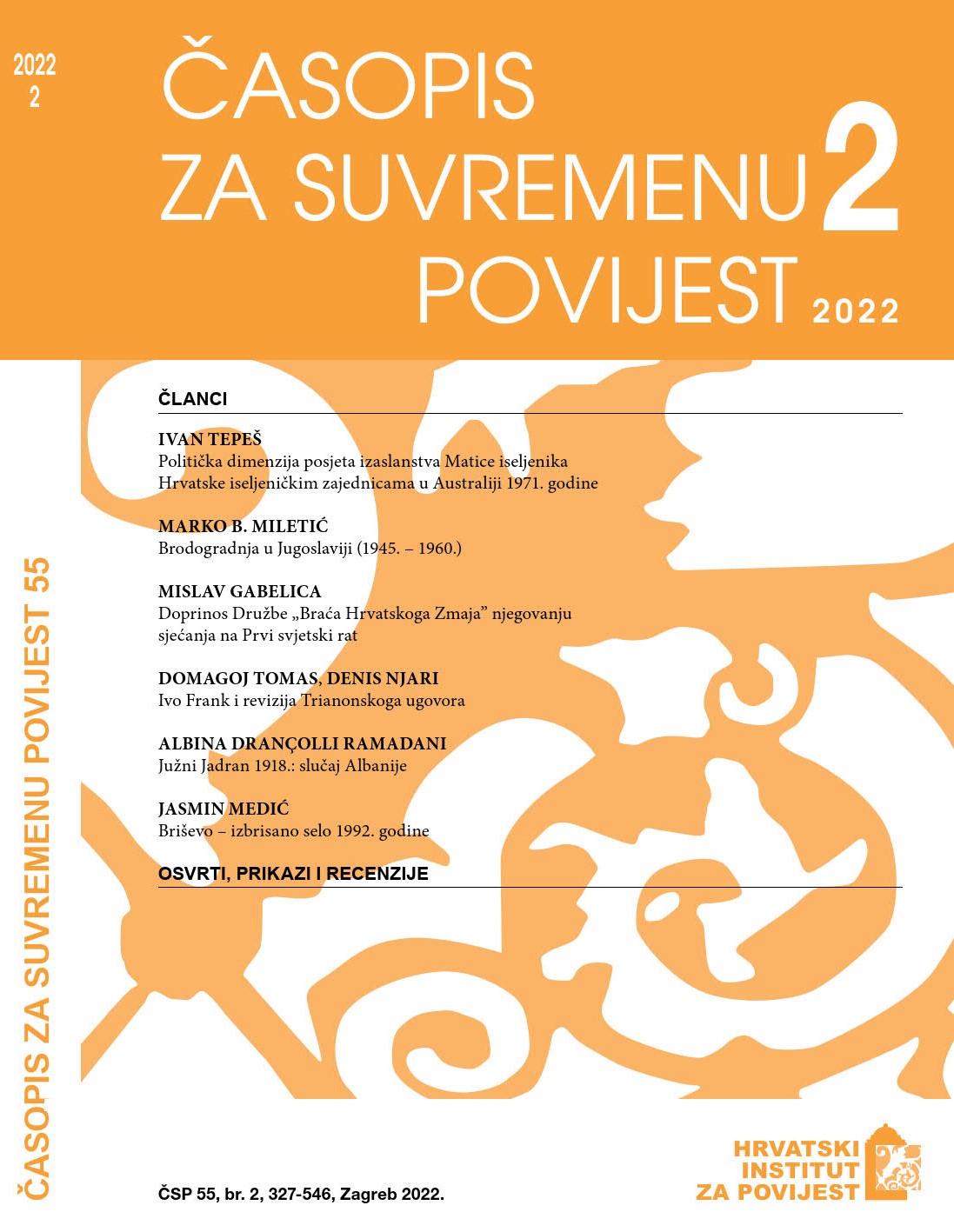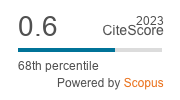The Contribution of the Society of Brethren of the Croatian Dragon towards Preserving the Memory of World War I
DOI:
https://doi.org/10.22586/csp.v54i2.21233Keywords:
Society of Brethren of the Croatian Dragon; World War IAbstract
Using the available literature, press articles, and archival material, the author analyses the relationship of a Croatian cultural association, the Society of Brethren of the Croatian Dragon (SBCD), towards World War I heritage. This analysis includes the period from the beginning of World War I to the end of World War II. Since he considers the SBCD a representative Croatian cultural association in this period, the author believes that its relationship towards World War I heritage may be an indicator of the relationship of the Croatian public in general towards this war. During his research, the author noticed that this association was significantly active in all efforts whose goal was to preserve the memory of this war for future generations. After the end of World War I and the creation of the Yugoslav state, this activity almost completely ceased, and the situation did not change after the establishment of the Independent State of Croatia. The author considers that there were multiple reasons for this lack of interest in World War I heritage. Firstly, the participation of Croats in the armed forces of Austria-Hungary, which was an enemy of Serbia, was politically problematic topic in the new state and therefore avoided, especially since the new state was dominated by Serbs and built on Serbian victory culture. The political circumstances were also important in this context. If this society fostered ‘soft’ Croatness until the mid-1930s, striving to find a compromise between preserving Croatian national identity and respecting the Yugoslav state framework, how can one explain that the relationship of the society towards World War I remained unchanged since the mid-1930s, when a more combative Croatian spirit had spread through the society, and especially during the Independent State of Croatia? In his answer to this question, the author proposes that the symbolism of World War I, in which Croats fought on the side of Austria-Hungary—a state that was seen as a foreign entity—did not have the capacity to support the idea of an independent Croatian state.
Downloads
Published
How to Cite
Issue
Section
License
Copyright (c) 2022 authors and journal

This work is licensed under a Creative Commons Attribution-NonCommercial 4.0 International License.
Copyright holders are the publisher Croatian Institute of History and the authors. Journal of Contemporary History is an Open Access journal. Users are allowed to read, download, copy, redistribute, print, search and link to material, and alter, transform, or build upon the material, or use them for any other lawful purpose as long as they attribute the source in an appropriate manner according to the Creative Commons licence CC BY-NC. The papers published in Journal of Contemporary History can be deposited and self-archived in the institutional and thematic repositories providing the link to the journal's web pages and HRČAK. Journal does not charge article processing charges (APC). The editors assume no responsibility for statements of fact or opinion made by contributors.




